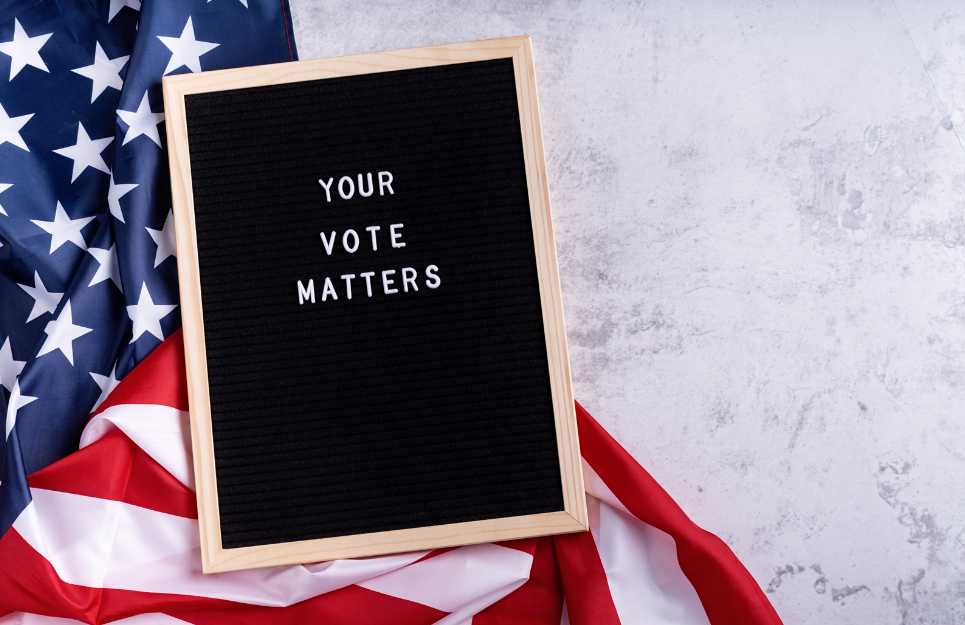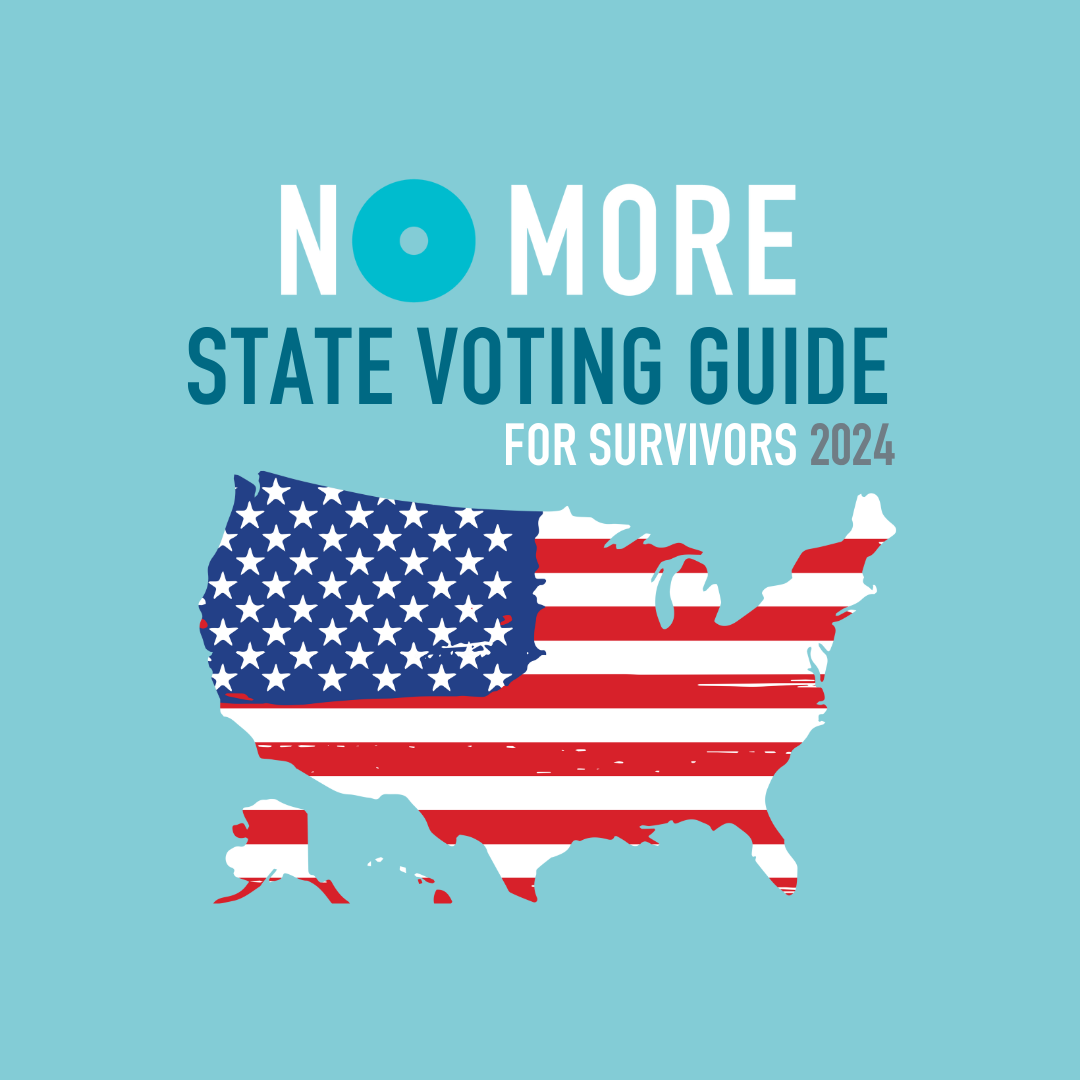Hidden Barriers: Domestic Violence and Obstacles to Voting

For many Americans, the upcoming election is an opportunity to make our voices heard. Despite record turnout in the last presidential election, still nearly one-third of eligible voters didn’t participate.
There are many reasons why people don’t go to the polls. For victims of domestic violence, often they are isolated by their abusers and prevented from exercising their right to vote. Other times, abusers may leverage their power over their victims, attempting to sway their vote or silence it altogether.
At NO MORE, we believe that recognizing these barriers is the first step to overcoming them.
Isolation and Lack of Access to Voter Information
Often, people in abusive relationships are cut off from their support systems, and some abusers may go as far as restricting access to mail, social media, the internet, and even public spaces. Isolation can prevent victims from receiving information on registration deadlines, polling locations, and details about the candidates and issues at stake.
With fewer opportunities to access this critical information, victims may miss deadlines for voter registration or find themselves unaware of their voting options.
What You Can Do: You can help by sharing voter information through channels that are less likely to be monitored by abusers, such as community bulletin boards, local libraries, or through trusted friends and neighbors.
Threats and Intimidation
For those who manage to register and stay informed, the act of voting can still be risky. Abusers may use threats to force their victims into voting a certain way – or not voting at all. This can happen through direct threats of physical harm, as well as other forms of manipulation, like financial control or emotional abuse.
Absentee voters, or those in areas where voting is done primarily by mail, may be especially vulnerable to this kind of coercion. At home, privacy can be compromised, with ballots being monitored or even intercepted by abusers. For those voting in-person, the threats and intimidation they experience at home can make the idea of voting feel more like a risk than a right.
What You Can Do: If you know someone in this situation, consider offering to accompany them to the polls or help them explore safe options for casting their ballot, such as securing their mail or taking advantage of early voting opportunities that allow for more control over the timing and location of voting.
Privacy Risks
For victims of stalking or those fleeing an abusive relationship, voter registration can pose a significant privacy risk. This is because in many states, voter registration records are public, meaning anyone – including a stalker or former abuser – can access personal information such as addresses and party affiliation. The fear of being found might deter victims from registering to vote, even if they are otherwise motivated to participate in the election.
What You Can Do: To protect privacy, encourage those at risk to check their state’s voter registration policies. Some states offer confidential voter programs that allow survivors to register without revealing their personal information.
Acknowledging and Addressing Barriers
By understanding the hidden barriers that survivors face, we can all play a role in making voting safer and more accessible for everyone.
NO MORE is proud to share content to help guide survivors and their loved ones in making safe voting plans, including our comprehensive guide on state-specific policies that may aid survivors in exercising their right to vote confidently and securely.
If you or a loved one is facing these concerns with voting, remember that there are resources and support systems available to help.

NO MORE's State Voting Guide for Survivors
The comprehensive guide is designed to help survivors and their loved ones navigate the voting process safely and with confidence. It provides detailed, state-specific information on programs and voting options that can help protect survivors' privacy when voting, including Address Confidentiality Programs, confidential registration, early voting, same-day registration, and voting by mail.
Make a Difference
The best way to make an impact is by joining the movement. Subscribe with a supporting membership for as little as $5 a month.
Become a ChampionTogether We Can End Domestic and Sexual Violence






